-
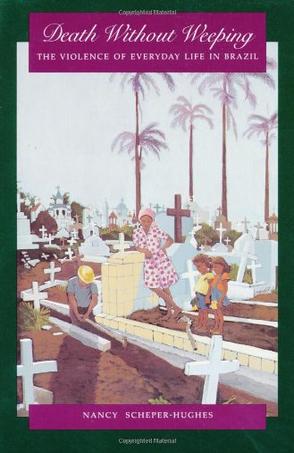
Death Without Weeping
When lives are dominated by hunger, what becomes of love? When assaulted by daily acts of violence and untimely death, what happens to trust? Set in the lands of Northeast Brazil, this is an account of the everyday experience of scarcity, sickness and death that centres on the lives of the women and children of a hillside "favela". Bringing her readers to the impoverished slopes above the modern plantation town of Bom Jesus de Mata, where she has worked on and off for 25 years, the author follows three generations of shantytown women as they struggle to survive through hard work, cunning and triage. It is a story of class relations told at the most basic level of bodies, emotions, desires and needs. Most disturbing - and controversial - is her finding that mother love, as conventionally understood, is something of a bourgeois myth, a luxury for those who can reasonably expect, as these women cannot, that their infants will live. The author also wrote "Saints, Scholars and Schizophrenics: Mental Illness in Rural Ireland". -
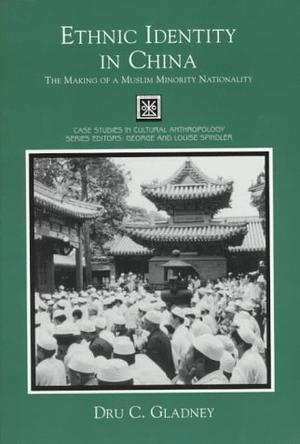
Ethnic Identity in China
This case study introduces students to the problems of ethnic diversity in China, a modern nation-state that is normally thought of and taught as culturally monolithic. By introducing students to the wide diversity of identity within one nationality, they are exposed to the ethnic complexities as well as to the larger issue of ethnic pluralism in modern nation-states. Students' perceptions regarding other societies, as well as our own, are challenged and broadened. -
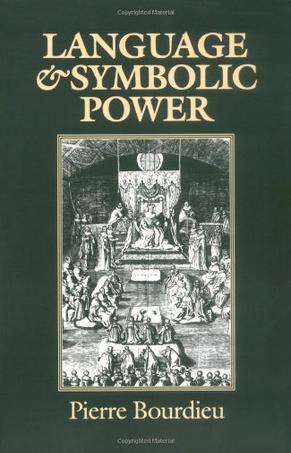
Language and Symbolic Power
This volume brings together Bourdieu's highly original writings on language and on the relations among language, power, and politics. Bourdieu develops a forceful critique of traditional approaches to language, including the linguistic theories of Saussure and Chomsky and the theory of speech-acts elaborated by Austin and others. He argues that language should he viewed not only as a means of communication but also as a medium of power through which individuals pursue their own interests and display their practical competence. Drawing on the concepts that are part of his distinctive theoretical approach. Bourdieu maintains that linguistic utterances or expressions can be understood as the product of the relation between a linguistic market" and it "linguistic habitus." When individuals use language in particular ways, they deploy their accumulated linguistic resources and implicitly adapt their words to the demands of the social held or market that is their audience. Hence every linguistic interaction, however personal or insignificant it may seem, hears the traces of the social structure that it both expresses and helps to reproduce. Bourdieu's account sheds fresh light on the ways in which linguistic usage varies according to considerations such as class and gender. It also opens up a new approach to the ways in which language is used in the domain of politics. For politics is, among other things, the arena in which words are deeds and the symbolic character of power is at stake. This volume, by one of the leading social thinkers in the world today, represents a major contribution to the study of language and power. It will be of interest to students throughout the social sciences and humanities, especially in sociology, politics, anthropology, linguistics, and literature. -
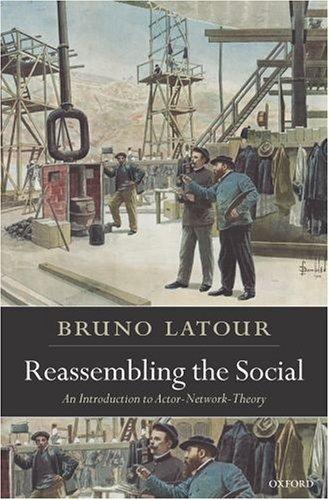
Reassembling the Social
Reassembling the Social is a fundamental challenge from one of the world's leading social theorists to how we understand society and the 'social'. Bruno Latour's contention is that the word 'social' as used by Social Scientists has become laden with assumptions to the point where it has become a misnomer. When the adjective is applied to a phenomenon, it is used to indicate a stabilized state of affairs, a bundle of ties that in due course may be used to account for another phenomenon. Latour also finds the word used as if it described a type of material, in a comparable way to an adjective such as 'wooden' or 'steely'. Rather than simply indicating what is already assembled together, it is now used in a way that makes assumptions about the nature of what is assembled. It has become a word that designates two distinct things: a process of assembling: and a type of material, distinct from others. Latour shows why 'the social' cannot be thought of as a kind of material or domain, and disputes attempts to provide a 'social explanation' of other states of affairs. While these attempts have been productive (and probably necessary) in the past, the very success of the social sciences mean that they are largely no longer so. At the present stage it is no longer possible to inspect the precise constituents entering the social domain. Latour returns to the original meaning of 'the social' to redefine the notion and allow it to trace connections again. It will then be possible to resume the traditional goal of the social sciences, but using more refined tools. Drawing on his extensive work examining the 'assemblages' of nature, Latour finds it necessary to scrutinize thoroughly the exact content of what is assembled under the umbrella of Society. This approach, a 'sociology of associations' has become known as Actor-Network-Theory, and this book is an essential introduction both for those seeking to understand Actor-Network-Theory, or the ideas of one of its most influential proponents. -
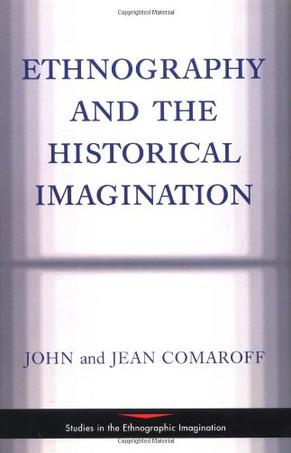
Ethnography And The Historical Imagination
Over the years John and Jean Comaroff have broadened the study of culture and society with their reflections on power and meaning. In their work on Africa and colonialism they have explored some of the fundamental questions of social science, delving into the nature of history and human agency, culture and consciousness, ritual and representation. How are human differences constructed and institutionalized, transformed and (sometimes) effaced, empowered and (sometimes) resisted? How do local cultures articulate with global forms? How is the power of some people over others built, sustained, eroded, and negated? How does the social imagination take shape in novel yet collectively meaningful ways?Addressing these questions, the essays in this volumeseveral never before publishedwork toward an imaginative sociology,” demonstrating the techniques by which social science may capture the contexts that human beings construct and inhabit. In the introduction, the authors offer their most complete statement to date on the nature of historical anthropology. Standing apart from the traditional disciplines of social history and modernist social science, their work is dedicated to discovering how human worlds are made and signified, forgotten and remade. -
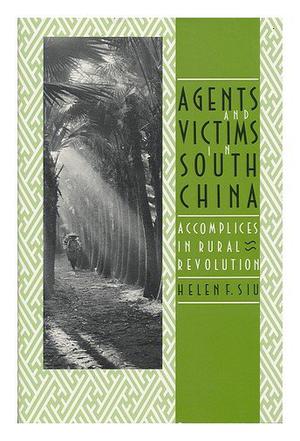
Agents and Victims in South China
When peasants live in complex agrarian societies with distinct hierarchies of power, how much are they able to shape their world? In this socio economic, political, and anthropological history, Helen F. Siu explores this question by examining a rural community in Guangdong Province from the late nineteenth century to the present.